Memories and Places: Roshan arrives at the British Museum! (Roshan Mishra, Nepal, Senior Fellow 2022)
Written by Roshan Mishra, Director, Taragaon Museum (Nepal, ITP Fellow 2018, Senior Fellow 2022)
After an 18-hour journey, I touched down in Heathrow, London. Coming from one continent to another, it was almost like coming through a magical door. I was ready to live and experience my time differently for two months; my food, friends, climate, city, transportation, and other experiences were all changing.
As an ITP fellow in 2018, I was already familiar with the ITP team and the British Museum, and as a senior fellow returning to the British Museum this year, I was particularly excited to meet and work with the ITP team and the 2022 ITP fellows, whom I had only met virtually. I was eager to get there and meet the fantastic ITP team because I had some priceless prior experience and memories with them and the museum.
On the day of my arrival I reached the hotel at 11PM, I messaged George and notified him that I safely arrived to the hotel. The next morning because of jetlag I was awake at 3AM. At 7:30AM the breakfast bar was open at the hotel, after having my full English breakfast, I went out towards the British Museum. I didn’t get in because of the long queue and just decided to walk around and experience the city.
On my way to the British Museum, I passed by a red telephone booth that had been converted into a Visionary Brit museum. The iconic red telephone booth is a heritage of the city of London, and it was wonderful to see it preserved and repurposed. It was such a wonderful example for me to see it from the perspective of preservation. Me as a foreigner; I recall calling home from similar telephone box in the late 1990s, I am sure the people of London has so many untold stories, for me the Visionary Brit Museum was an attempt re-narrate the past memory, purpose and the history by itself.
It was my first day out on a Sunday, the trains were not running properly, and places were opening late and closing early, so I decided to walk to a nearby park from the hotel. I noticed a pair of telephone booths near the park’s entrance. These two red telephone booths were converted into a street food stall. I was so happy to bump onto another example of how a city decided to repurpose the red telephone booths.
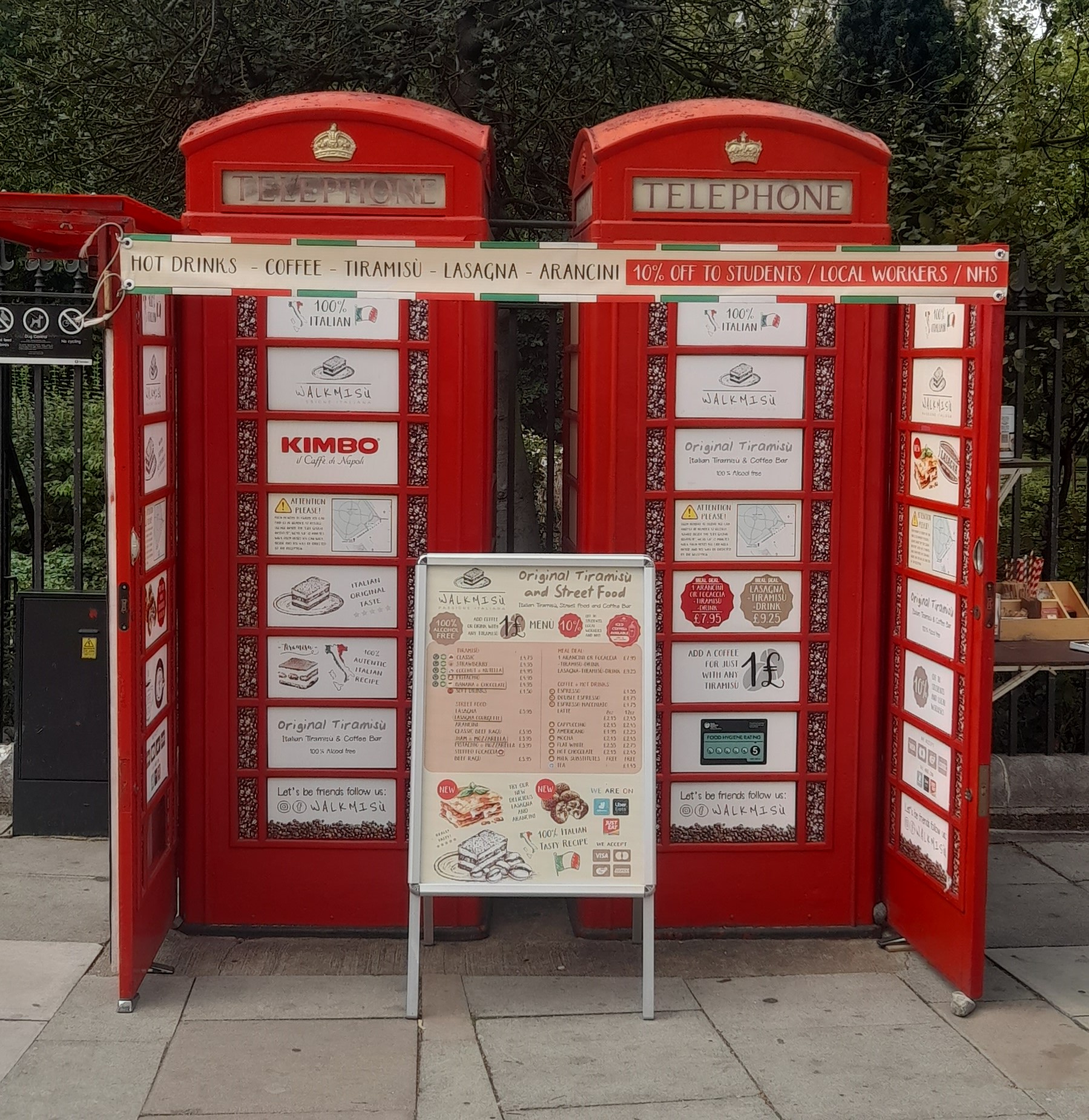
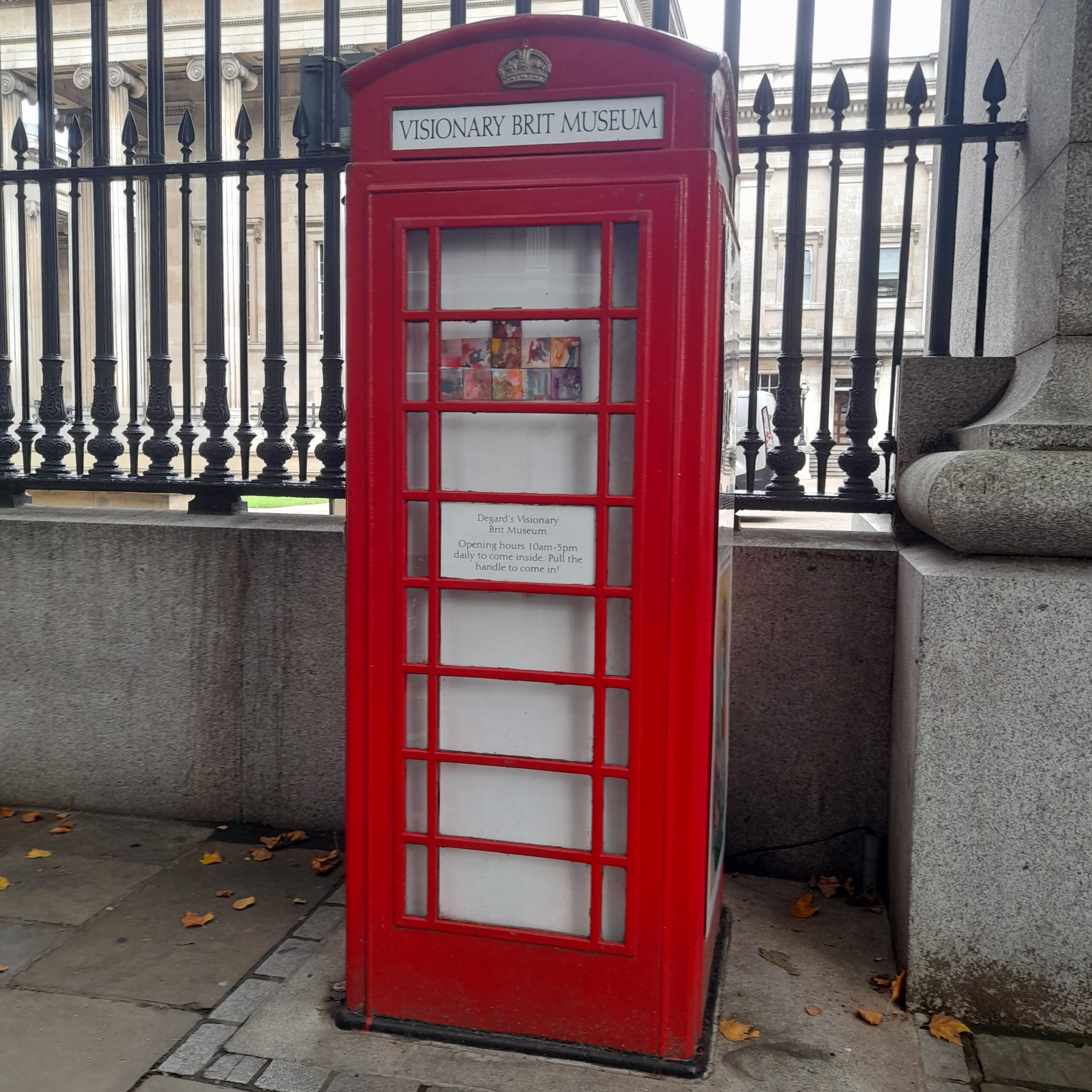
Though I am not new to London, every time I come here, I was not only taking away the art and culture related experience. Every time I visit cities like London I always try to find out how these cities are thinking about its user. I saw bike stands but there were no dedicated bike lanes and it was fulfilling the need of the city. Just of the others side of the bike stand I saw the free water pod it had a message “Enjoy tap water. Prevent plastic waste”. All these small things may not mean anything to the local people but for me it was exemplary when I thinking about Kathmandu city, where I was born and brought up.
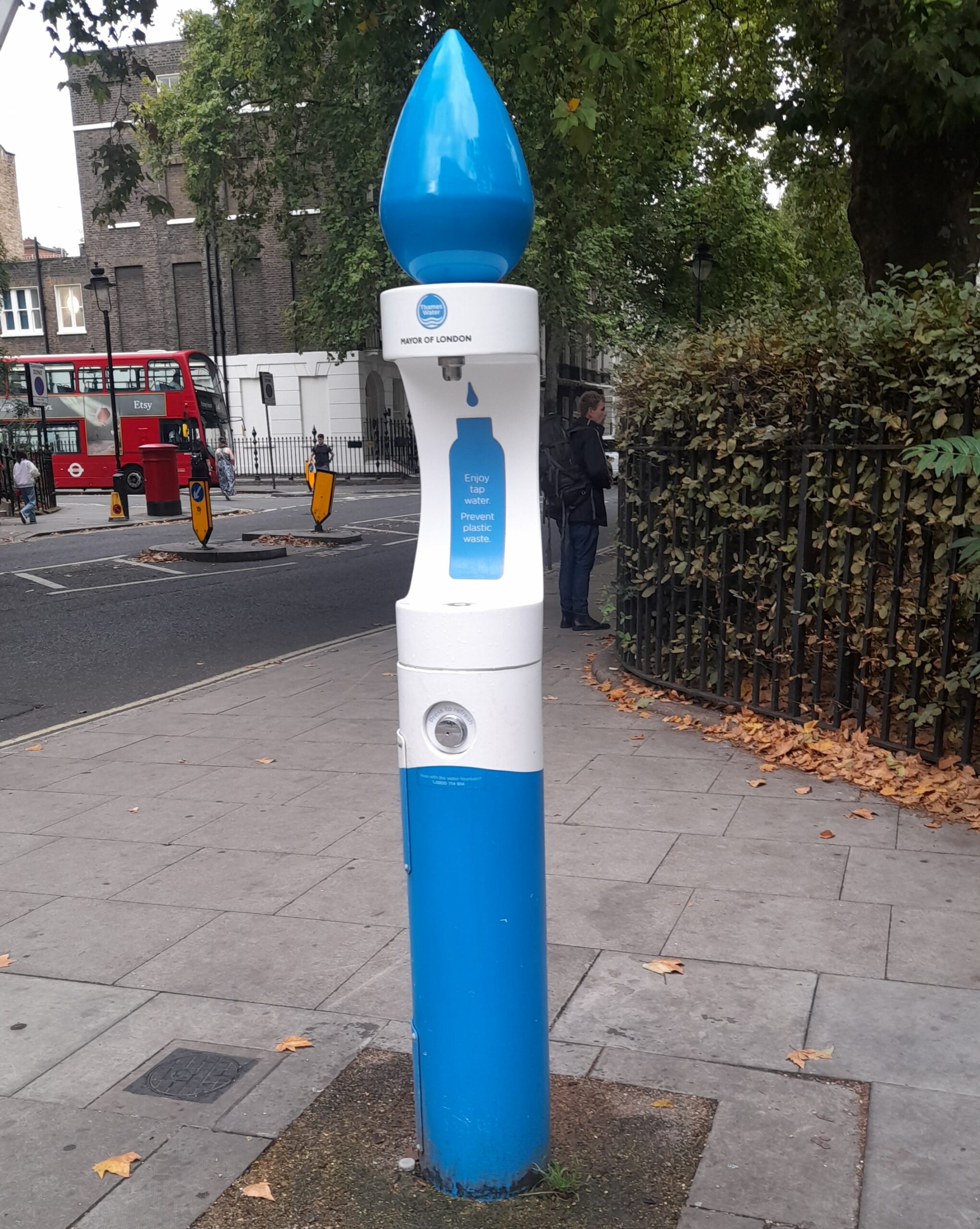


Our cities are full of memories, and I believe we are trying to archive our memories than anything else, the new narratives are built from our own experience, people, places and spaces
On Monday, I had a nice lunch with George and Anna; it was also the day Liz Truss was announced as Prime Minister of the UK; I’m not sure whether the country was happy or unhappy, but it will be etched in my memory as a historical day simply because I was in the UK. On the same day, I also went to the Nepal section at the Hotung Gallery, I couldn’t resist to take a selfie with my favourite Avalokiteshvara. Later on I spent some hours with George and he gave me an overview of my role during my stay at the British Museum.
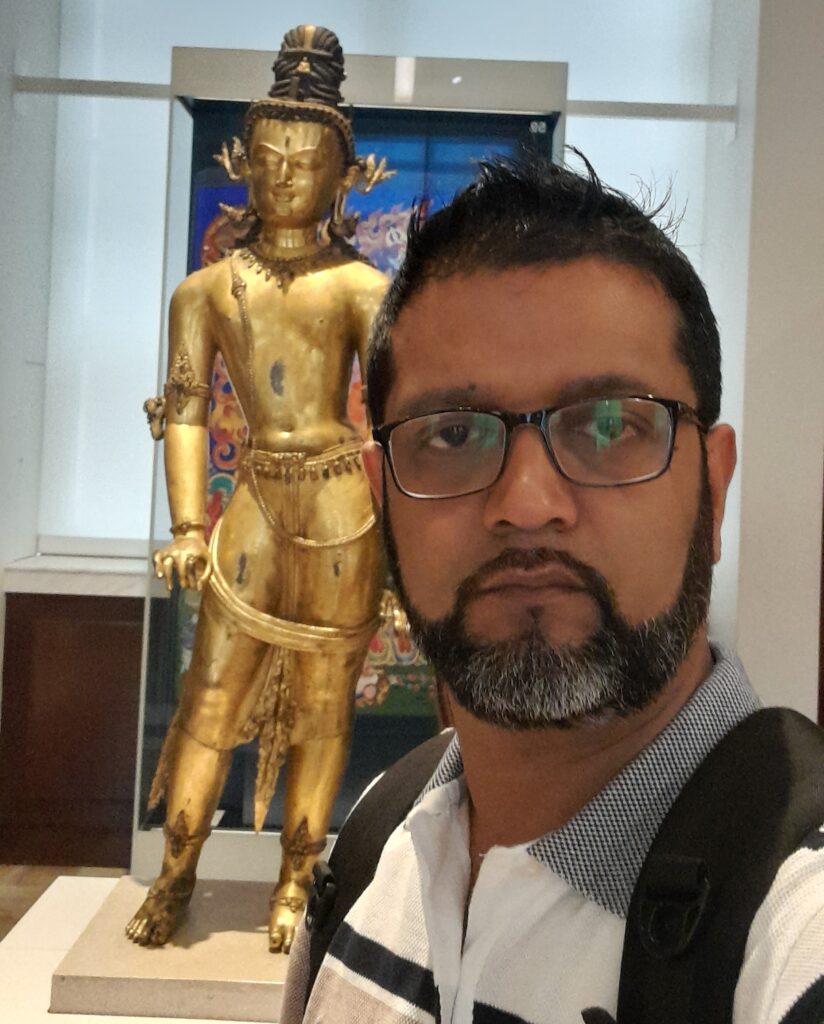
6th September, day 2 at the British Museum, George suggested I go see the Shattered glass of Beirut exhibition. The exhibition is a microcosm of the larger historical explosion that happened in August 2020. It was a very moving exhibition for me. I have never heard such a powerful sound of shattering glasses. The narrative was based on memory and place (The AUB Archaeological Museum).
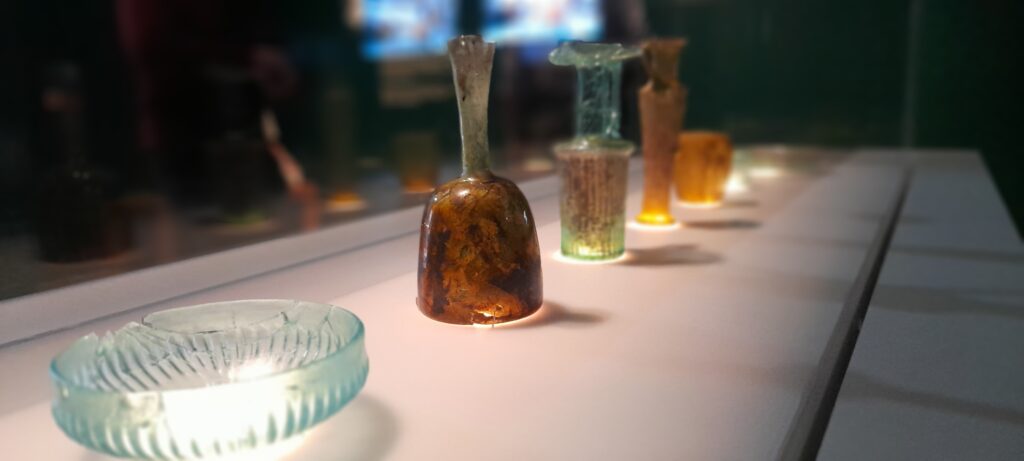
Our cities are full of memories, and I believe now we care more about archiving them than anything else; new narratives are being written based on our own experiences, people, places, and spaces, as well as from changes and references we collect from the social, economic, and political upheaval.
